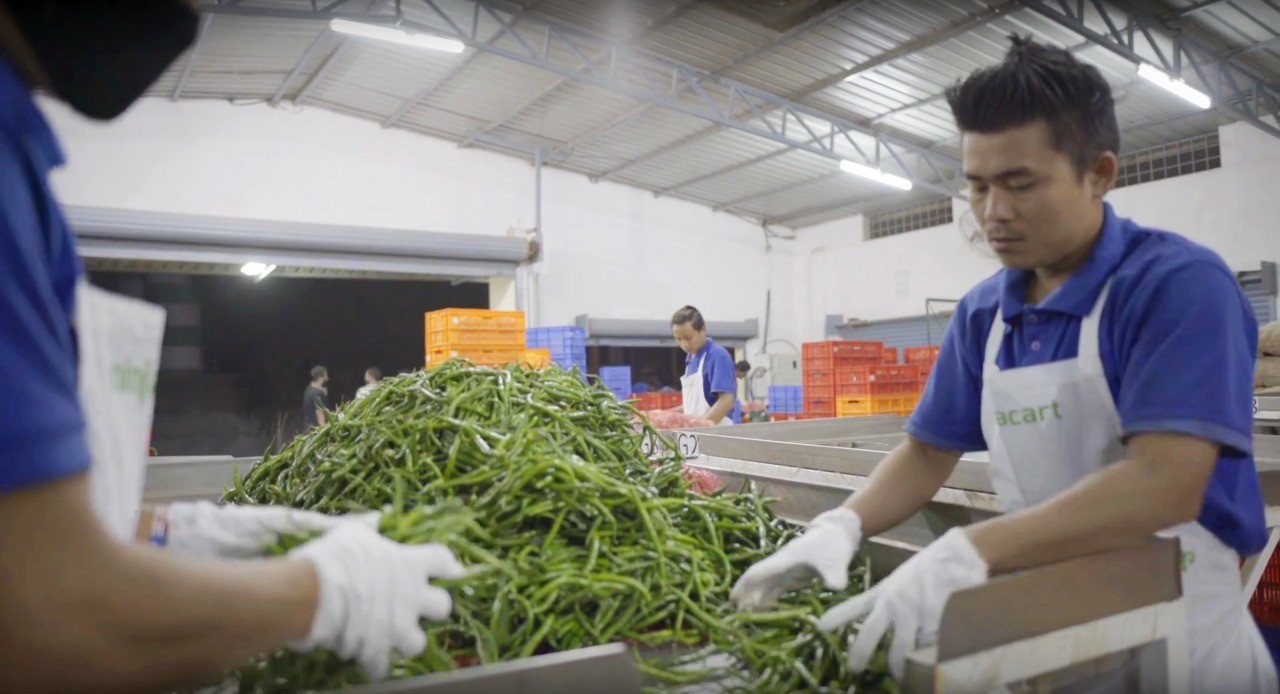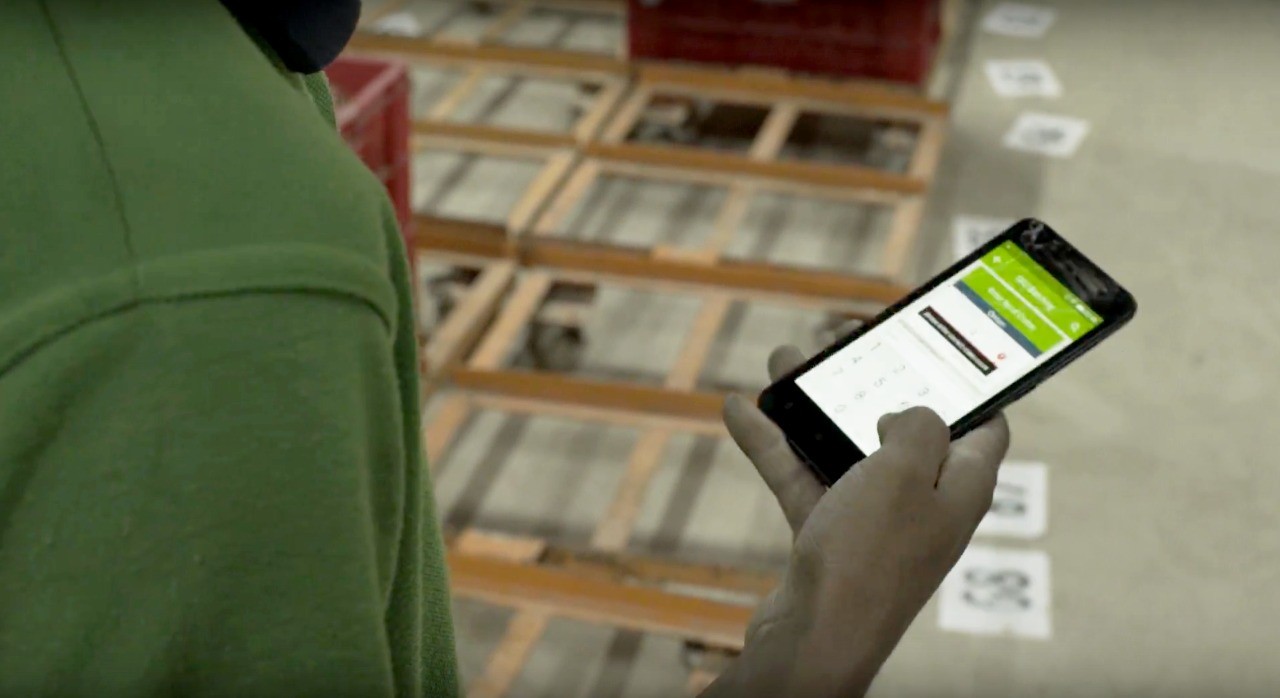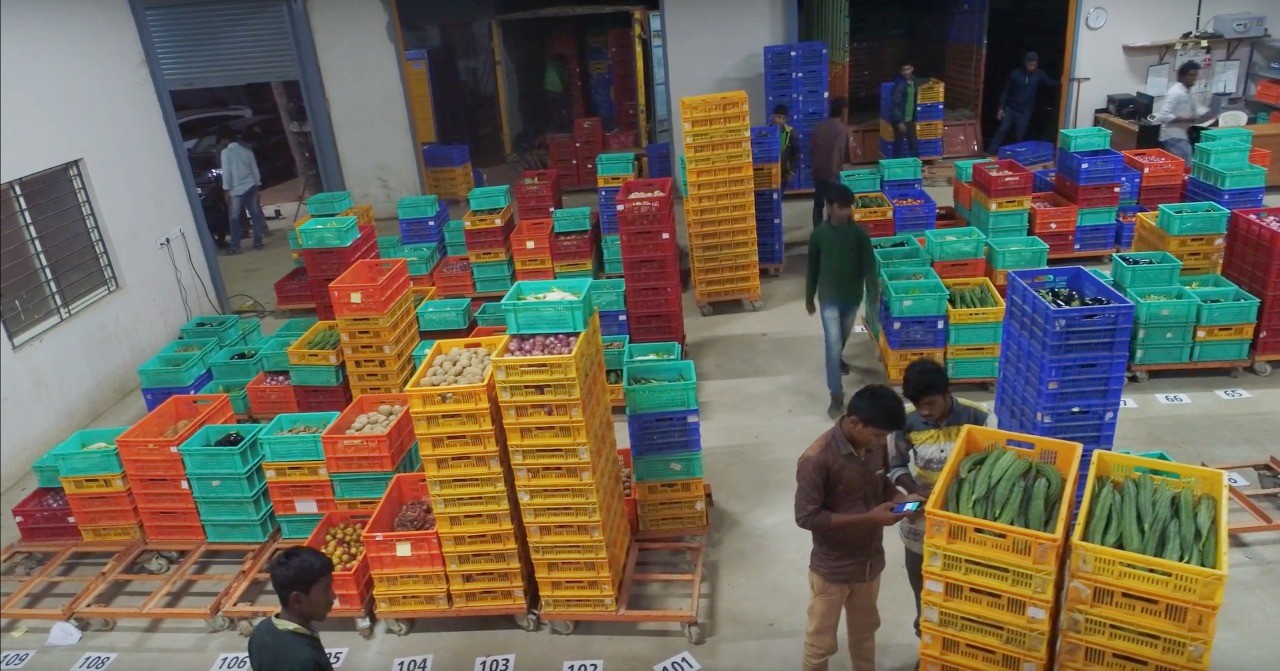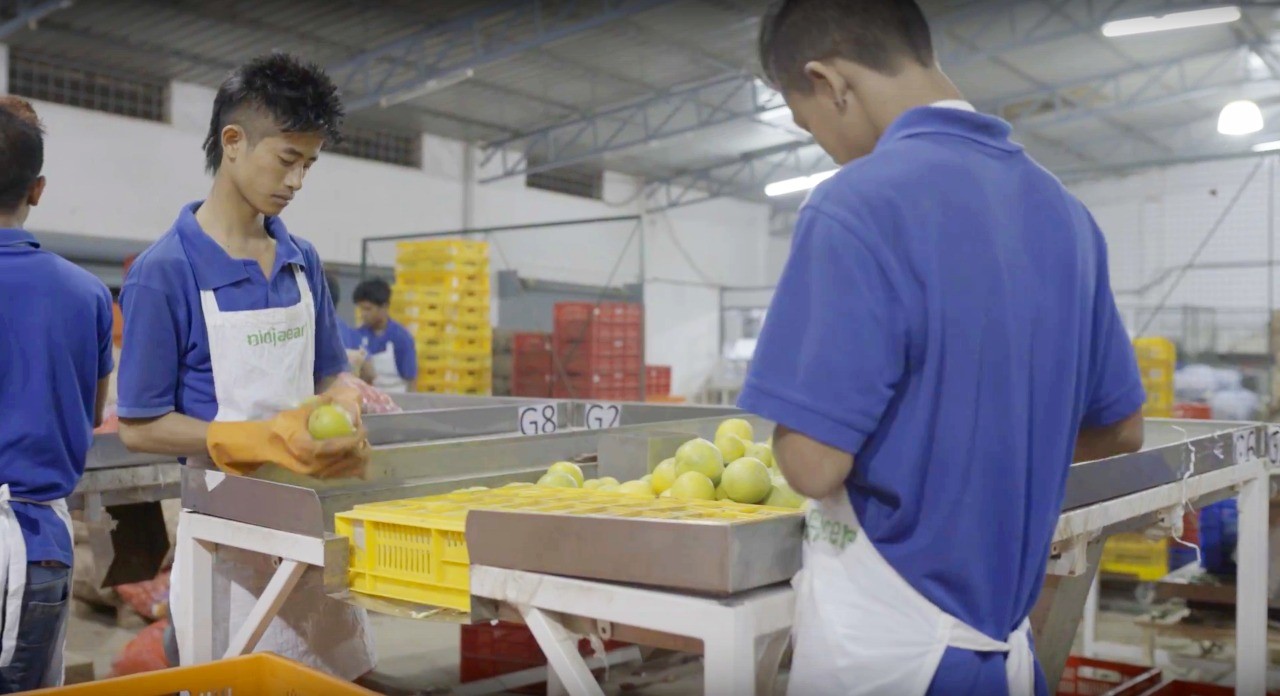Ninjacart stands out in 11 cities with just-in-time grocery logistics
Thirukumaran Nagarajan, co-founder and chief executive officer of Ninjacart, talks to Indian Transport & Logistics News (itln.in) about supply chain inefficiencies, solutions, competitors, technology, clients, farmers and future of Ninjacart.

June 30, 2021: Ninjacart is a technology-based fresh produce supply chain company that currently operates in and around 11 Indian cities including Bengaluru, Chennai, Hyderabad, Delhi, Gurugram, Mumbai, and Pune. The company plan to grow into tier 2 and 3 cities in the future.
Thirukumaran Nagarajan, co-founder and chief executive officer of Ninjacart, talks to Indian Transport & Logistics News (itln.in) about supply chain inefficiencies, solutions, competitors, technology, clients, farmers and the future of Ninjacart.
Tell me about how satisfied you are with Ninjacart and the objectives it has achieved?
First and foremost, it was a daunting journey because we had no data or system to refer to when we began with the concept of Ninjacart. I am satisfied with the amount of effort we have put in to make the supply chain more transparent and efficient at all levels. Starting as a B2C model and pivoting to B2B was one of the most difficult decisions that my co-founders and I made in the early days of operating in Bengaluru. Ninjacart has addressed the flaws in the food supply chain by incorporating innovations and assisting producers with fresh produce, ultimately serving the bottom of the pyramid, i.e., the end consumers. Lack of access to technology left the farmers at the mercy of middlemen to understand the market price, farming cost and demand requirements. At the same time, retailers struggled to get a timely hold of fresh produce. It is reliable to say that we have developed a controlled distribution system by replacing middlemen with Artificial Intelligence (AI) and Machine Learning (ML).
Ninjacart has taken significant steps in the last three years to ensure ‘Safe Food for Billion People’ which was the ultimate vision, thus it has become our purpose of existence. To accomplish this, we have implemented ‘FoodPrint’, a traceability infrastructure that allows consumers to track fresh produce at all levels of the supply chain until it reaches the retailers. The introduction of traceability infrastructure has expanded our ability to adapt residue-free farming methods. Residue-free vegetables are grown with optimal farm inputs to meet the expected global food safety standards. Overall, streamlining the supply chain and adapting and bringing in technological advancements in the agriculture sector was our consistent effort and we are extremely proud and satisfied that we have been able to make a difference in people's lives.

Ninjacart managed to gain the trust among farmers as well as the retailers to convert their traditional techniques to a modernized supply chain, ensuring transparency, credibility and safety.
Give me a list of inefficiencies you had identified while running the on-demand grocery delivery company and how you solved some of them with the resulting end-to-end B2B fresh produce platform?
It took us a year to assess the success of this business model after we gained a better understanding of the food supply chain. With the help of automated functions, Ninjacart managed to overcome the following challenges with strong yet unique solutions.
Persuading farmers and retailers to adopt the new method of the supply chain: From visiting the Mandis to convincing the retailers, we have come a long way. Since all the roles of this advanced version were data-driven, we encountered many challenges in operating it. It was also more difficult for us to win the support of the farmers, as they would rather deal with middlemen than trusting a tech startup. It's easier for them to trust the face they have known for so long than believing us. Ninjacart managed to gain the trust among farmers as well as the retailers to convert their traditional techniques to a modernized supply chain, ensuring transparency, credibility and safety of all the stakeholders.
Transportation
The transportation of perishable goods such as fruits and vegetables has been a constant challenge for the supply chain players. It is the most fragile step of the supply chain. The product needs to be stored within a monitored temperature range. It also necessitates specialised equipment and goods expertise. We at Ninjacart managed to overcome this challenge as well.
Elimination of the middlemen
Cutting-edge technology has become the need of the hour. Apart from helping us modernise our processes and the overall sector, it has also assisted in making the Ninjacart food supply chain cost-effective. Interference from third-party vendors in the supply chain often disrupts the flow, resulting in a price rise. We structured a framework that enabled us to use Artificial Intelligence and machine learning to replace the middlemen.
A transparent pricing system
Having known that the farmers will be more likely to sell their farm products at a loss, we strived to create a solution by implementing a transparent pricing mechanism. Ninjacart would provide a high level of value to the farmers, ensuring the best possible return for the end consumer.
Training to the farmers, retailers
Lack of coordination, insufficient storage space, and a supply-demand imbalance contributed to post-harvest losses, which had to be curbed by supplying suitable harvesting tools and equipment. At the same time, we had to train/educate the farmers about the new technologies adopted. In addition, numerous tech advancements and creative management techniques were introduced to help retailers overcome challenges such as lengthy procurement procedures, poor quality management, and lower margins.

The Ninjacart supply chain relies on vehicle routes planning to transport tonnes of fresh produce from farms to retailers in less than 12 hours.
What is the role played by technology in your company? How intelligent are your technologies? How big is the tech team?
Technology plays a pivotal role in Ninjacart food supply chain management. We, at Ninjacart, employ our efforts in turning data into actionable insights. We use sophisticated algorithms, big data, predictive analytics, and a mobile app-based platform to make it more effective and transparent. We employ data to plan our daily operations and to support the decision-making process for our business. The technology used by Ninjacart is smart to predict patterns and potential threats in the food supply chain. For instance, the use of generative models and programming helps Ninjacart to accomplish a recommendation engine and the prediction model. To assess the type of product that needs procurement, we look at the customer purchasing history and order frequency. By releasing the ‘Harvest the Farm' calendar with weather forecasts, we notify farmers about what is expected of them for that particular month.
The Ninjacart supply chain relies on vehicle routes planning to transport tonnes of fresh produce from farms to retailers in less than 12 hours. The orders placed a day prior by retail customers are saved by using algorithms. It chooses the best delivery route based on customer location, tonnage, crate count, and delivery time window. The algorithm meticulously outlines the vehicle route to the customer locations. By mapping 1000+ routes for vehicles, our algorithms automate logistics planning and optimization.
Furthermore, we ensure transparency in the entire food supply chain through RFID (Radio Frequency Identification), which enables us to track fresh produce as it undergoes various facilities. With the help of FoodPrint, the product is monitored throughout the supply chain. Right from the details of the farmer to those of the collection centres, everything is duly recorded. This information can be accessed by entering a foodprint ID. The same is maintained until the product surpasses the manufacturer and finally reaches the customer.
To decide what goes into a farm to grow a particular crop, we follow best practices and use analysis techniques, which are summarised as follows:
Facial recognition
The software quickly captures the entire face, then fragments it into small pieces and converts it in the form of data streams. To mark attendance, 90 percent accuracy is required each time. This data is used to track the productivity of employees from start to finish and at various points in the supply chain. It is even required to solve many common problems that arise, ensuring orders are delivered timely and without hiccups.
Constraint-oriented modelling
Constraints include distance, vehicle, cost, capacity and time. After defining these constraints, we use a metaheuristic optimization technique (Guided Local Search) to maximize objective function and reduce supply cost
Future-ready ERP
Mobile-ready ERP removes all paper used in the supply chain
Demand forecasting
Leveraged deep machine learning to perfect forecasting to 97 percent and reduce the overall wastage to 4 percent [Traditional supply chains have wastage up to 25 percent]
Farmer apps
Ninjacart also has specific apps for the farmers wherein they help them not only in demand forecasting but also with harvest planning and determining the price indent
Connected logistics
Speed and price can make or break any supply chain. Ninjacart’s indigenous route optimization and utilization keep the load factor at 92 percent. It puts fresher vegetables on the plate (they move the produce from farm to store within 12 hours) at a cost that is 1/3rd of the traditional supply chain.

Ninjacart stands out because of our just-in-time logistics system, which puts pace and reliability at the forefront of all processes.
Tell us about the market and industry you are serving. Who are your competitors? What makes you different?
Ever since its inception, Ninjacart has been successfully operating as an agritech startup. Daily we transport tonnes of fresh produce and connect farmers directly with retailers, restaurants and small business owners. We further offer ease of convenience to restaurants and retailers, as they can review the quality and freshness of vegetables and fruits at their doorstep, without having to visit the market.
Ninjacart was one of the first agritech startups in India to identify the pain points of the supply chain. Being the first one there were several challenges which we dealt with as they came. Many start-ups have simply replicated our model and are running successfully alongside. We are happy that we made enough difference to the industry for others to understand the potential it offers and pushed them to contribute to the overall success of the industry
Ninjacart stands out because of our just-in-time logistics system, which puts pace and reliability at the forefront of all processes. The infrastructure we built has significantly reduced the time it takes for produce to travel from farm to store, increasing farmers earnings and living standards. We deliver fresh vegetables and fruits from farmers to retailers as well as other allied businesses across 11 major Indian cities in less than 12 hours. Ninjacart is what it is today because of our investments in technology and data science, and our future will be defined by our investments in these areas. Farmers who work with us gain insight into the demand and supply of produce that is in line with market demands. Data is used to figure out the logistics of delivery so that drivers do not make unnecessary trips and are always around when needed for deliveries. Retailers enjoy the convenience of receiving fresh produce delivered at their doorstep along with online inventory with secure payment.
Tell us about your clients. Who are they? What do they want? Are they any trends in their demands?
We deliver fresh produce to retail outlets, restaurants, grocery stores, kirana stores and small businesses within a few hours of being picked up from farms. We make sure that our clients, retailers, and businesses have the convenience of having fresh produce delivered hygienically without having to go to the market first thing in the morning.
 With the help of Ninjacart, farmers can focus more on agriculture and learn new processes for cultivation.
With the help of Ninjacart, farmers can focus more on agriculture and learn new processes for cultivation.
Tell me about other stakeholders in the supply chain, like the farmers. How do they benefit from Ninjacart?
We, at Ninjacart, maintained a consistent regulatory framework of high-quality fresh produce that met market demand in collaboration with the farmers. We provide farming training and assistance to farmers. For instance, we help them with data-driven crop recommendations as well as guide them with accurate information on pre-harvest prices and trends in demand.
With the help of Ninjacart, farmers can focus more on agriculture and learn new processes for cultivation. Over the years, the net realised income of our farmers has grown by 20 percent. Above all, Ninjacart saves the time and efforts of the farmers to deal with several intermediaries. They were not sufficiently compensated for their contributions by the participation of middlemen in the supply chain and the farm produces were undervalued. Online banking facilities are a bonus for the farmers to enjoy the quick and easy payment method. In short, Ninjacart acts as the one-stop-sale platform for all the products for farmers.
A data-driven approach has aided not only farmers but also retailers, restaurants, and Kirana stores in obtaining a large quantity of quality fresh produce at a competitive price directly from farmers.
What we could expect from you in the near future, maybe five years?
In recent years, we have witnessed new players entering the market primarily to assist the farmers in their pre and post-harvesting journey. We hope to bring the maximum amount of innovation and resolution so that the retailers can have a safe supply of fresh produce. The launch of FoodPrint has expanded our vision to educate farmers about residue-free farming ways. In this endeavour, Kilofarms has joined hands with us and recently we have produced the first batch of residue-free tomatoes. We have developed tech-enabled ways like drip irrigation to help farmers in achieving the best grade of fresh produce using residue-free ways. It not only allows to assemble the food through the best farm inputs but also lowers most Residue Limit (MRL). It is conjointly climbable, sensible and more cost-effective than pure organic food.

Libin Chacko Kurian
Assistant Editor at STAT Publishing Group, he has eight years of experience in business journalism covering food & beverage, nutraceuticals and now logistics. His current passion is to understand the nuances of global supply chains and their current turmoil. Outside work, he is also interested in philosophy, history, birding and travelling. Mail him: libin@statpublishinggroup.com Follow on LinkedIn


